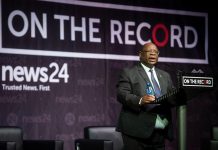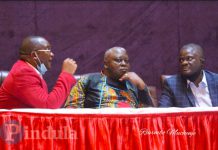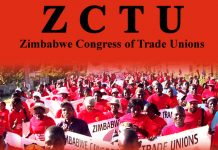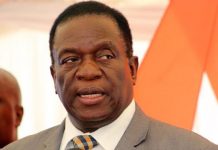THE government ordered another nationwide internet shutdown Thursday – the second this week – ignoring local and global condemnation of its brutal crackdown against protestors and the adverse impact of the cyber-censorship on an already tanking economy.
And as his govt yet again abridged Zimbabweans’ “constitutional right to freedom of expression”, President Emmerson Mnangagwa continued to travel the world, leaving Russia for Belarus.

Critics describe the latter country as Europe’s last dictatorship. The Zimbabwean leader was seen in social media videos eating cake upon arrival in the Belarusian capital of Minsk.
Chief critic and exiled former information minister Professor Jonathan Moyo ridiculed the Zanu PF leader for being un-presidential and surprisingly oblivious to the possibility of poisoning despite surviving apparent such attacks back home.
Cabinet ministers have blamed the opposition for the fatalities, injuries, looting and destruction of property witnessed over the three-day protest which started Monday.
They accused the opposition MDC party and surrogate groups of using the protest to try and overthrow a constitutional order.
Meanwhile, the latest internet shut down was confirmed by the country’s largest telecoms company Econet Wireless Zimbabwe.
Said Econet in a message to its network users; “we were served with another directive for total shutdown of the internet until further notice.
“The earlier directives are already the subject of a pending High Court Application. We sincerely apologise for all inconvenience caused by the acts of government which are beyond our reasonable control.”
The High Court challenge was filed by advocacy attorneys, the Zimbabwe Lawyers for Human Rights (ZLHR) and the local branch of the Media Institute of Southern Africa (MISA) after the first two-day blockade on Tuesday and Wednesday.
Apparently responding after, local and international outrage, the government partially lifted the first blockade late Wednesday.
Service providers were told to restore access but not for social media platforms such as Twitter, Facebook, YouTube and the popular text messaging platform WhatsApp.
Even so, tech-smart Zimbabweans found ways around the social media blockade by switching to alternatives for WhatsApp as well as Virtual Private Networks (VPN), the latter a common anti-censorship tool.
Realising that the social media censorship was not working, the embattled administration reverted to a full internet ban Thursday evening.



![MDC Alliance Activists Attacked In Zvimba [Photo] Chamisa Outlines MDC Alliance’s Heroes Plan In “A New Zimbabwe” | FULL THREAD](https://static.africa-press.net/zimbabwe/sites/14/2021/08/img-61112ae8934ca-218x150.jpg)


